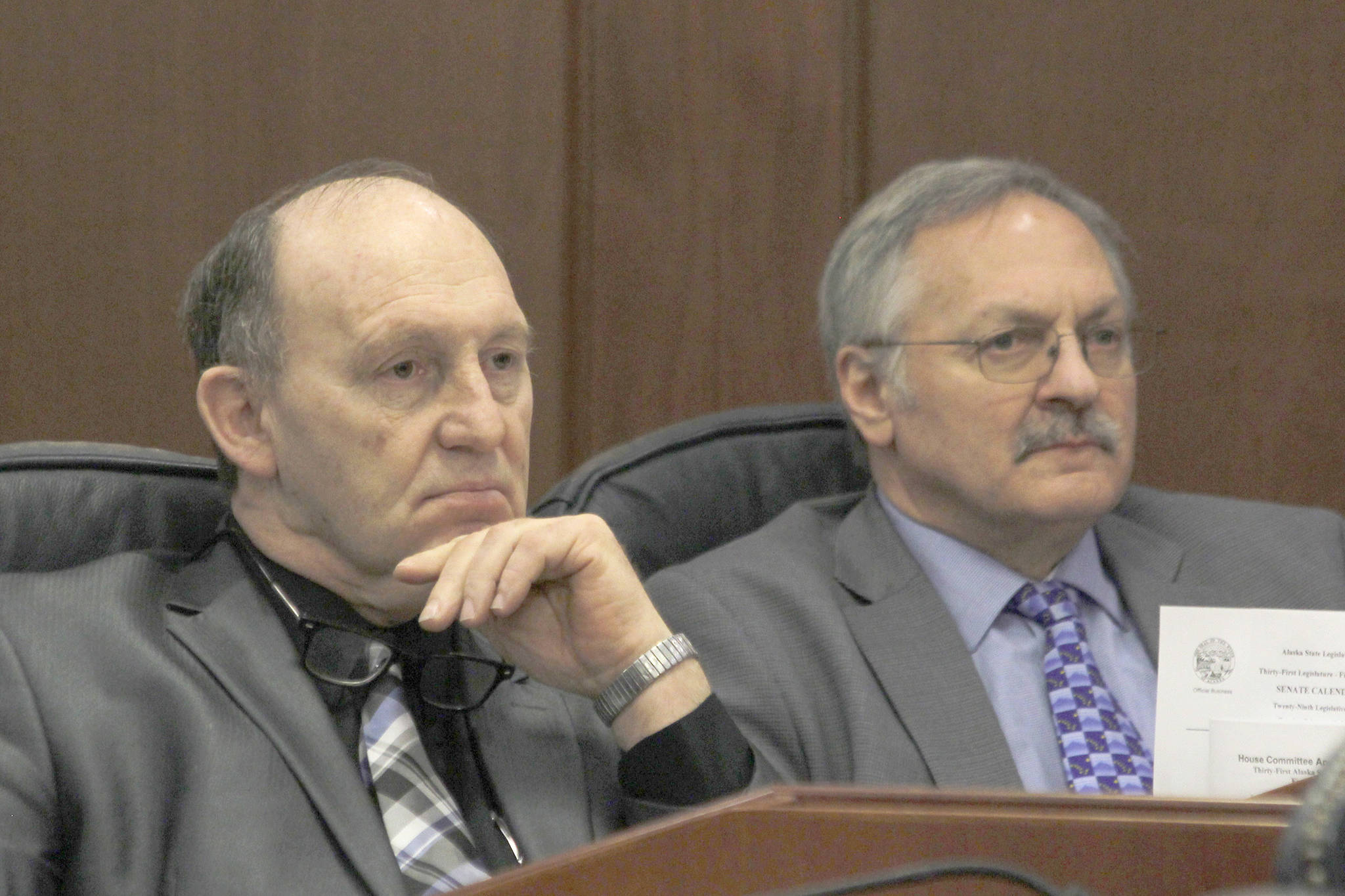Rep. Gary Knopp, R-Kenai/Soldotna, faced an official censure on Friday from the Alaska Republican Party State Central Committee for his role in forming a majority coalition with Democratic representatives at the beginning of this year’s legislative session.
Glenn Clary, chairman of the State Central Committee, said that the censure will have three major consequences for Knopp: Knopp will no longer receive any official support — financial or otherwise — from the Alaska Republican Party; a primary challenger to Knopp will be supported by the party and Knopp will be prohibited from participating in any official Alaska Republican Party activities.
As of now, two people have already filed as primary challengers against Knopp, who is up for re-election in 2020: Ron Gillham, who previously ran against Sen. Peter Micciche, R-Soldotna, in the last election cycle, and former Rep. Kelly Wolf. Clary said that the Alaska Republican Party has not yet endorsed either of these candidates.
The motion for censure was made during Friday’s Republican Party committee meeting in Kenai by Jason Floyd, a member of the District 30 Republicans and a constituent of Knopp. According to the language in the motion, Knopp “engaged in actions detrimental to Alaska Republicans or to Republican values and goals.”
The motion cited Knopp’s vote against the Republican House Majority, his vote against Republican House Speaker candidate Dave Talerico, R-Healy — which prevented the House from organizing with a Republican majority — and Knopp’s public statement that he would rather organize with a select group of Republicans and Democrats than with 21 Republicans.
The censure was passed unanimously. Knopp was also in attendance during the meeting.
Knopp has had to justify his actions to constituents repeatedly throughout this year’s legislative session. In the first 30 days of the regular legislative session, Knopp refused to vote for a Republican Speaker of the House, and said during a town hall held in Soldotna on Feb. 15 that he did so because he didn’t feel that a 21-person Republican Majority would be a strong enough coalition to get things done during session.
Knopp has said that his primary goal has always been getting a budget passed, but even with the bipartisan majority coalition that Knopp helped form, the House was unable to pass a budget during regular session and was forced to go into an extended session to deal with that and several other issues including crime, education and the Alaska Permanent Fund dividend.
Clary said that the topic of censure was initially brought up within the State Central Committee back in January, during the fight over organization in the House, but the issue was tabled at that time.
Knopp did not return phone calls by press time.

